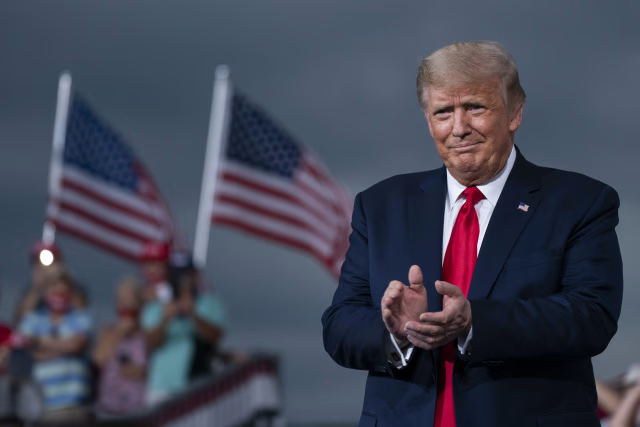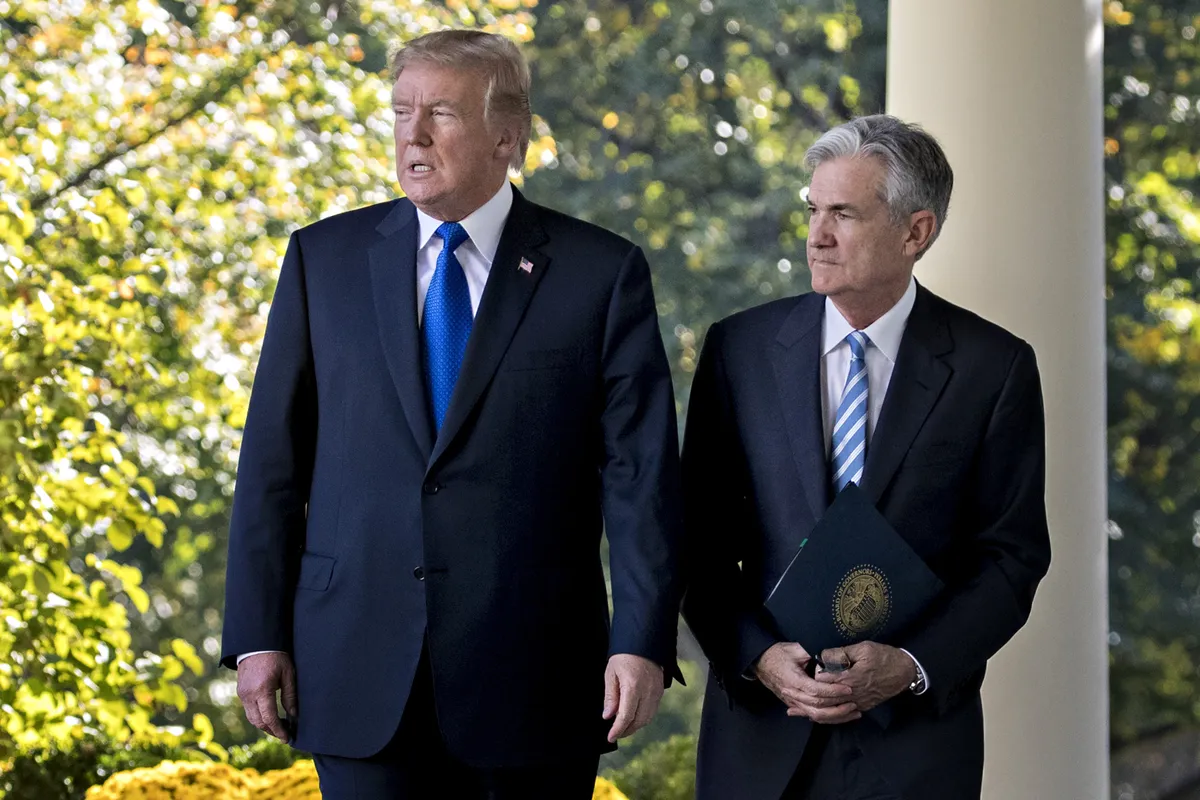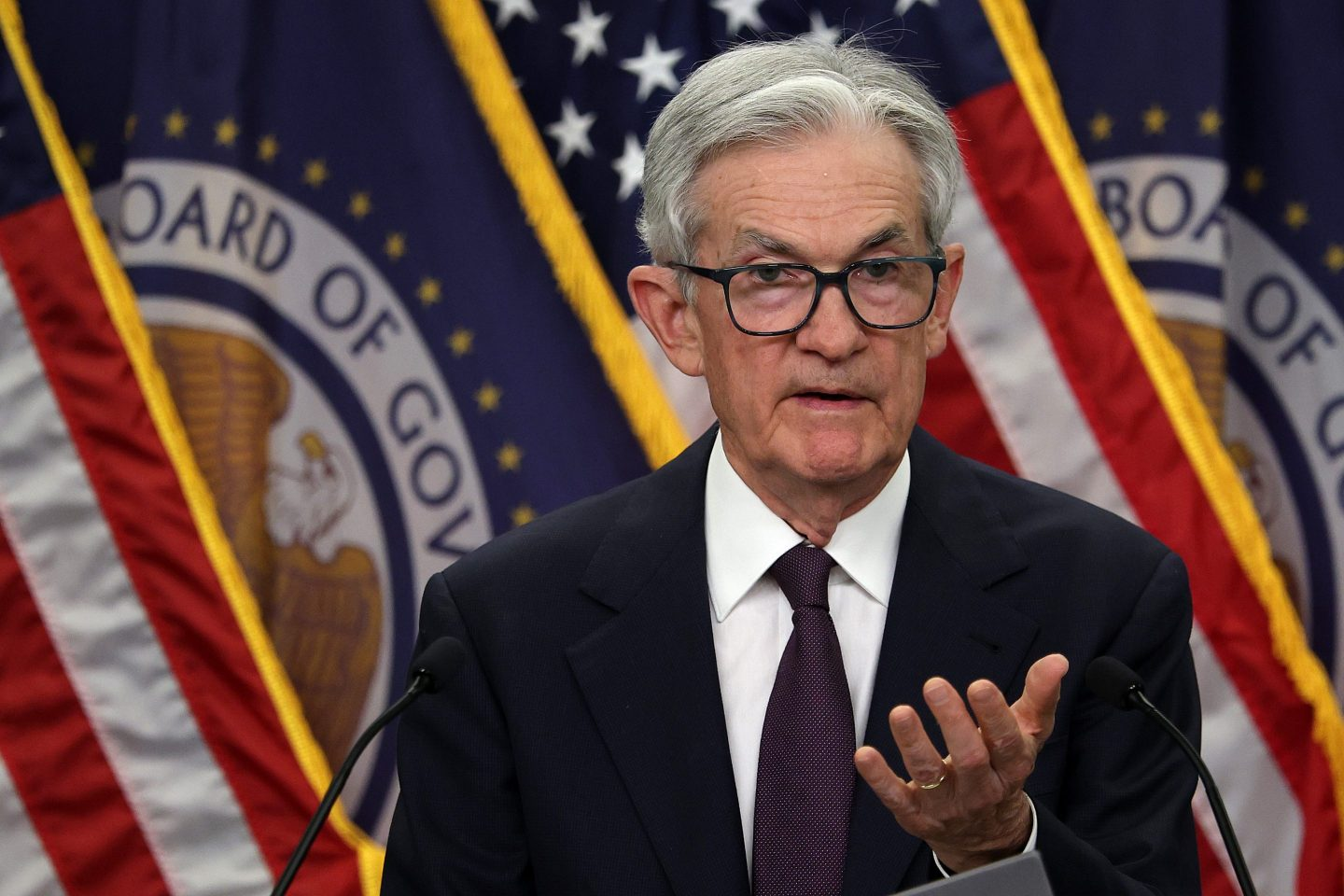
Donald Trump’s renewed criticism of Fed Chair Jerome Powell, calling for his resignation, has reignited concerns over central bank independence. His push for lower interest rates comes as markets weigh inflation risks, tariff impacts, and potential policy shifts. As political pressure mounts, investors are closely watching for signs of disruption to monetary stability.
The Federal Reserve plays a key role in managing inflation, interest rates, and overall economic stability. Traditionally, it operates free from political influence to ensure that monetary policy serves long-term national interests, not short-term political goals. Trump has suggested he would exert more control over Fed policy if re-elected, including replacing current Chair Jerome Powell and pushing for lower interest rates. Such moves would break with decades of precedent and could alter how markets and institutions view the Fed’s independence. As economists warn of the risks of politicizing monetary policy, Trump’s stance raises urgent questions about the future of the Fed and its ability to operate without interference.

Background context
The Federal Reserve serves as the United States central banking system, tasked with the fundamental mission of ensuring price stability, fostering maximum employment, and safeguarding financial system stability. The institution exercises significant influence over economic conditions through monetary policy instruments including interest rate modifications and open market operations, which directly impact economic growth, inflation rates, and the cost of credit throughout the economy.
A defining characteristic of the Federal Reserve is its operational independence from executive branch interference. Although the president nominates Fed leadership and the Senate provides confirmation, the institution's structural design ensures that monetary policy decisions stem from economic analysis and data rather than political considerations. This autonomy is considered fundamental to maintaining market confidence, managing inflation effectively, and ensuring that economic policies prioritize long-term economic welfare over immediate political objectives.
The established precedent among U.S. presidents has been to respect the Federal Reserve's decision-making autonomy, even when disagreeing with specific policy choices. This institutional norm has historically preserved the separation between political leadership and monetary policy. Trump's vocal criticism of Federal Reserve policies, both previously and currently, represents a notable break from this longstanding tradition, generating significant concern about the potential politicization of monetary policy decisions and the erosion of institutional independence that has long been considered vital to economic stability.

Recent developments
President Trump posted on Truth Social on July 3, 2025, calling for Fed Chair Jerome Powell to resign "immediately," linking to a housing regulator investigation into Powell's testimony on Fed headquarters renovations. Trump previously stated he had "no intention of firing" Powell but reports indicate his advisers are exploring potential successors.
Trump has advocated for Fed interest rate cuts to boost economic growth, while Powell cited inflationary pressures from proposed tariff policies as constraints on rate reductions. The 10-year Treasury yield stood at 4.27% on July 3, 2025, down 0.02 percentage points from the previous session and 0.09 points lower over the past month. The U.S. Dollar Index (DXY) rose to 97.12 on July 3, 2025, but has weakened 1.68% over the past month and declined 7.64% over the last 12 months.
Market analysts expect continued volatility in the second half of 2025 as bond investors navigate evolving tariff policy, U.S. government debt and economic uncertainty. Following Trump's April tariff announcements, the 10-year Treasury yield moved from 4.17% to 3.96% before spiking higher, reflecting market sensitivity to policy statements.
Conclusion
The ongoing discourse between President Trump and Federal Reserve Chair Jerome Powell represents a contemporary example of tensions between political leadership and institutional independence. The situation highlights questions about the relationship between democratic accountability and central bank autonomy.
The outcome of these interactions will likely influence future discussions about the institutional framework for American economic governance and the balance between political oversight and operational independence.
Chelsea covers business and economic news in Malaysia, providing insights on market trends, corporate developments, and financial policies. More about Chelsea Low




